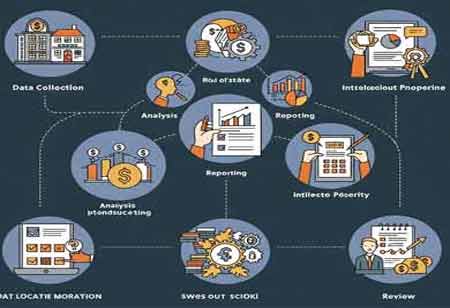CLOSE
Specials
- RegTech Europe
- Financial Risk Management APAC
- Investment Banking APAC
- Corporate Advisory APAC
- Regtech APAC
- Escrow Services
- Digital Banking Latam
- Trading Solutions APAC
- Treasury Management Europe
- CPA Firms Canada
- Financial Risk Management Europe
- Mortgage Broker
- Financial Licensing Europe
- RIA Advisory Europe
- FinTech Canada
- Financial Asset Management APAC
- Investment Banking Canada
- Payment Solution
- Lending Mangment Latam
- Payment Solution Europe
- Broker Dealer Firms Canada
- Alternative Investments Canada
- Financial Fraud
- Investment Management Latam
- Financial Health Europe
- Lending mangment
- Financial Marketing
- Proprietary Trading Europe
- Wealth Management
- FinTech
- Financial Brokerage Firm APAC
- Investment Advisory Europe
- Investment Advisory APAC
- Wealth Management MENA
- Claim Adjusting
- Claim Adjusting APAC
- Mergers and Acquisitions Consulting APAC
- Equipment Financing
- CPA Firms
- Mergers and Acquisitions Consulting Canada
- Investment Services
- Valuation Services Canada
- Wealth Management APAC
- Broker Dealer Firms
- Debt Collection Agencies
- Mergers and Acquisitions Consulting
- FinTech Europe
- Fintech Latam
- Financial Planning / Retirement
- Investment Management
- Financial Compliance
- Digital Banking Europe
- CFO Services
- Debt Collection Agencies Europe
- Wealth Management Europe
- Mergers and Acquisitions Consulting Europe
- Financial Restructuring Europe
- Financial Portfolio Management Canada
- Business Loan
- Payment and Card Latam
- Wealth Management Latam
- Mergers and Acquisitions Consulting Latam
- Tax Advisory Canada
- Trading Solutions Europe
- Alternative Investments
- Digital Insurance Europe
- Investment Services Latam
Weekly Brief
×Be first to read the latest tech news, Industry Leader's Insights, and CIO interviews of medium and large enterprises exclusively from Financial Services Review
Thank you for Subscribing to Financial Services Review Weekly Brief
Europe Embraces Innovation in Global Debt Recovery
International debt recovery in Europe is evolving through digital solutions, regulatory alignment, and customer-focused practices that improve cross-border efficiency and long-term financial resolution.

By
Financial Services Review | Thursday, September 04, 2025
Stay ahead of the industry with exclusive feature stories on the top companies, expert insights and the latest news delivered straight to your inbox. Subscribe today.
Fremont, CA: The international debt recovery landscape in Europe is undergoing a significant transformation. Economic complexity, increased cross-border trade, and evolving consumer behaviour require recovery agencies to adopt more adaptable and efficient methods. Traditional approaches centred on aggressive collection tactics have lost effectiveness, prompting a shift toward smarter and more collaborative strategies. Businesses now seek global partners capable of handling multilingual, cross-jurisdictional recovery processes while respecting local laws and maintaining strong client relationships.
Modern debt recovery services rely on data-driven decision-making, advanced analytics, and seamless digital communication tools. These technologies streamline operations and also allow teams to assess credit risk more accurately and tailor outreach strategies to individual cases. In the international context, understanding cultural nuances and regulatory differences across borders is essential. Recovery services are developing more sophisticated systems to balance legal compliance with positive debtor engagement, ensuring better resolution rates and minimised reputational risks.
Technology Reshaping Collection Strategies
Digital innovation plays a central role in redefining how debt is recovered across Europe. Automated communication systems, multilingual chatbots, and AI-driven analytics enable teams to manage high volumes of cases with greater precision. These tools segment customers based on behaviour and payment history, allowing agents to prioritise accounts that are more likely to convert. Mobile-first platforms and self-service portals have made the repayment process more accessible and less confrontational, encouraging faster resolution.
Blockchain technology is also beginning to influence international debt recovery. Its transparent, immutable nature helps streamline documentation and validate transactions across borders, reducing disputes and expediting claims. Predictive analytics now forecasts debtor behaviour, assisting firms to act preemptively rather than reactively. These developments reduce operational costs and improve recovery rates while maintaining a better debtor experience.
Adapting to Regulation and Customer Expectations
Regulatory compliance remains a key concern in international debt recovery, especially with varied financial laws across European countries. Agencies must stay informed on data privacy, ethical standards, and cross-border collection rules to avoid penalties and maintain trust. This complexity drives the demand for experts who can navigate legal differences while ensuring fair treatment of debtors.
Customer behaviour is also influencing service design. Modern consumers expect clear communication, flexible repayment options, and empathy during financial hardship. Agencies have responded by incorporating softer negotiation techniques, personalised repayment plans, and digital contact channels to increase cooperation and trust. This humanised approach transforms debt recovery from a contentious process into a cooperative solution, supporting long-term customer retention.

Copyright © 2025 Financial Services Review. All rights reserved





